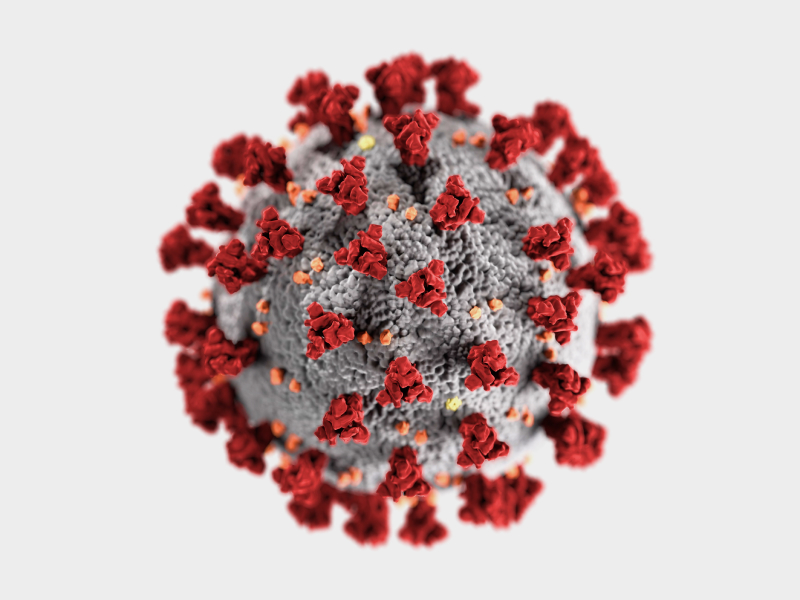Introduction
COVID-19 is one type of infectious diseases which is hugely impacting the world today. In fact, infectious diseases are one of the common problems faced by mankind.
As per WHO Global Burden of Diseases figures, top 10 causes of death in India includes three infectious diseases,
- Diarrhoeal diseases
- Lower respiratory infections
- TB
In this article, we explain what infectious diseases are, what causes them, different types of infections, what symptoms they cause and how to reduce the risk of infection.
How common are infectious diseases?
Infectious diseases are extremely common worldwide. Some infections occur more frequently than others.
What are infectious diseases?
An infection occurs when a microorganism enters a person’s body and causes damage to our body
What causes infectious diseases?
Infectious diseases are caused by microorganisms including:
- Bacteria
- Viruses
- Fungi
- Parasites
The infections can be spread from one person to another, directly as well as or indirectly. They can spread in several different ways:
- Skin contact
- Body fluids, example blood and saliva
- Ingesting contaminated food or water
- Inhaling airborne particles or droplets
- Touching an item that a person carrying the pathogen has also touched
- Contact with faeces
Some diseases may also spread through droplets discharged from a sick person when they cough or sneeze. These droplets are suspended in the air for a short period of time, landing on a healthy person’s skin or inhaled into their lungs.
In some cases, infectious diseases travel through the air for long periods of time in particles. Healthy people may inhale these contaminated particles and become ill. Only some diseases spread through airborne transmission like tuberculosis and the rubella virus.
Who are the people at most risk for getting infectious diseases?
Anyone can get an infectious disease. People with a compromised immune system, an immune system that does not work at full strength, have greater risk for certain types of infections. Those at higher risk include:
- People with repressed immune systems, such as patients under cancer treatment or who have recently had an organ transplant
- People who have not received vaccination against common infectious diseases
- Healthcare workers
- People traveling to at-risk areas where they may be exposed to mosquitoes that carry pathogens such as malaria, dengue virus, Zika viruses and recently Corona virus.
What complications are associated with infectious diseases?
Many infectious diseases cause complications. These can range from mild to severe. For some conditions, complications may include wheezing, skin rash, or extreme fatigue.
Certain infectious diseases may cause cancer. These include hepatitis B and C (liver cancer), and human papillomavirus (HPV) (cervical cancer).
What are the symptoms of infectious diseases?
Symptoms will differ as per the infectious disease. For example, symptoms of influenza include:
- Fever
- Chills
- Congestion
- Fatigue
- Muscle aches and headache
Other infectious diseases, such as Shigella infection, cause more severe symptoms, including:
- Bloody diarrhoea
- Vomiting
- Fever
- Dehydration (lack of fluid)
- Shock
One may experience one or several symptoms of an infectious disease.
How infectious diseases are diagnosed
The doctor may order lab tests or scanning to help determine what’s causing the symptoms.
Laboratory tests may include:
Many infectious diseases have similar signs and symptoms. Body fluids can many times disclose evidence of the particular type of microorganism that is causing the illness. This helps the doctor tailor treatment.
- Blood tests
- Urine tests
- Throat swabs
- Stool sample
- Spinal tap (lumbar puncture). Sample of the cerebrospinal fluid is collected through a needle carefully inserted in between the bones of the lower spine.
Scanning
Scanning like X-rays, computerized tomography and MRI (magnetic resonance imaging) will help confirm the diagnoses and rule out other diseases that may be causing symptoms.
Biopsies
During a biopsy, a small sample of tissue is collected from an internal organ for testing. For example, a biopsy of lung tissue can be checked for a type of fungi that has caused the pneumonia
Treatment
The treatment will vary as per the causative microorganism of the infectious disease.
Antibiotics
Antibiotics are used for the treatment of the bacterial infections. Different type of bacteria is susceptible to different group of antibiotics. Treatment can be targeted more precisely if the type of bacteria causing the infection is known.
Antibiotics are used in the treatment of bacterial infections, as this type of drugs have no effect on infections caused by viruses. But sometimes it’s difficult to decide which type of microorganism is the reason for infection. For example, pneumonia can be caused by bacteria, virus, fungi or parasite.
The overuse of antibiotics has resulted in several types of bacteria developing something known as resistance, to one or more antibiotics. Then these infections will not respond to treatment with the antibiotic against which they have developed the resistance.
Antivirals
These are the drugs that have been developed to treat the viral infections. Antivirals are difficult to be developed as there are wide variety of viruses emerging time to time like COVID-19 now.
Vaccination is used to develop resistance to viral infection.
Examples of antiviral drugs include:
- HIV/AIDS
- Herpes
- Hepatitis B
- Hepatitis C
- Influenza
- Now Covid-19
Antifungals
Antifungals can be used to treat skin or nail infections caused by various fungi. Fungal infections like that affecting the lungs or the mucous membranes, are usually treated with oral antifungals. In case of severe internal organs fungal infection, especially in people with weak immunity, may require injectable antifungals.
Anti-parasitic drugs
Parasites are another group of microorganisms that cause infections, example malaria. Anti-parasitic drugs are used to treat such parasitic infections.
Conclusion
Clear understanding of infectious diseases and how we can reduce the incidence of the infectious diseases and minimize the risk of spread of infection is required as the consequences of infectious diseases are severe like loss of life or huge financial burden.
